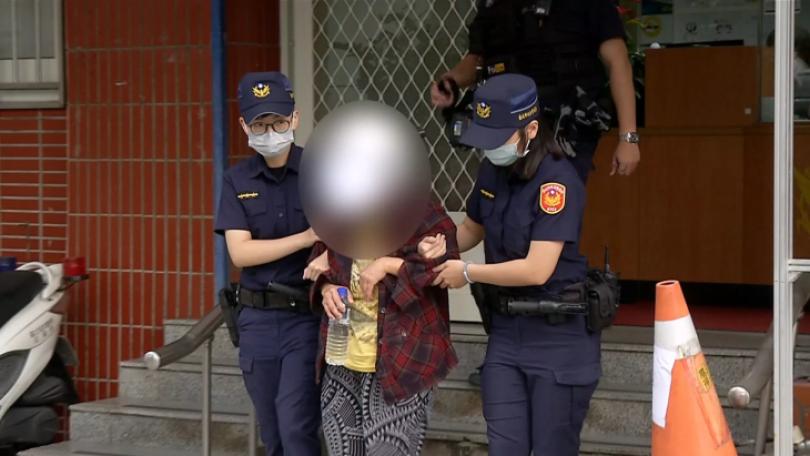CDC: Flu Vaccine Administration Deplayed to Late November |WHO晚公布選株 流感疫苗延後開打

發布時間:
更新時間:
In past years, the administration of flu vaccines covered under the universal health insurance tends to start on October 1. It was delayed to October 15 last year, and it could delayed even further this year, to middle or later November. The Centers for Disease Control (CDC) said that, the WHO has delayed their announcement of their strain selection, which means the supply for flu vaccines will be delayed around the world, and that the first batch of vaccines to Taiwan will be limited in quantity. The CDC said it will consider selecting a certain demographic to receive the shots first. Some doctors are concerned that, the delay could affect potential flu epidemic control.
The flu virus doesn't just spread during autumns and winters, it could be active during summers as well. The Centers for Disease Control (CDC) found that, in last week alone, the hospital emergency departments received more than 78,000 flu patients, of who most were elementary and high school students. In the past four weeks, there have been more than 100 cases of clustered flu infections around schools. In half of the cases, the students were infected by Type B Influenza, most were the Victoria strain.
The flu epidemic has suddenly spread in the last two months. It's likely due to the mutation of the Type B virus. The virus didn't show any abnormality in the past two, three months, and we only noticed something was off after the epidemic started.
The CDC said that if a strain of flu virus mutates, it often causes epidemics in schools. As summer approaches, the CDC said the epidemic could soon die down. In order to help prepare the citizens' immune system for the flu, the CDC will purchase quadrivariant flu vaccines this year and the administration will be covered under the universal health insurance. The vaccine will cover the two Type A flus and the two Type B viruses. However, due to the World Health Organization (WHO)'s delayed announcement on their virus strain selection, the supply of flu vaccine has been delayed around the world. It is estimated that the administration of the flu vaccine will be delayed to late November. Doctors are worried that the delayed vaccine administration will makes it difficult to contain a potential epidemic.
If the flu administration starts at the end of November, then half of the people who need the vaccine could still be waiting by the end of January or the beginning of February. If this happens, it will make containing a potential epidemic difficult.
The CDC stresses that it has completed the bidding process for the 6 million quadrivariant vaccines, and it anticipates that the first batch of vaccines will be limited in quantity. The CDC said if the administration of vaccines start in mid-November, it will consider giving the vaccines to a certain demographic first, and the administration will open to all citizens at the end of November when the vaccine supply is adequate.
The flu virus doesn't just spread during autumns and winters, it could be active during summers as well. The Centers for Disease Control (CDC) found that, in last week alone, the hospital emergency departments received more than 78,000 flu patients, of who most were elementary and high school students. In the past four weeks, there have been more than 100 cases of clustered flu infections around schools. In half of the cases, the students were infected by Type B Influenza, most were the Victoria strain.
The flu epidemic has suddenly spread in the last two months. It's likely due to the mutation of the Type B virus. The virus didn't show any abnormality in the past two, three months, and we only noticed something was off after the epidemic started.
The CDC said that if a strain of flu virus mutates, it often causes epidemics in schools. As summer approaches, the CDC said the epidemic could soon die down. In order to help prepare the citizens' immune system for the flu, the CDC will purchase quadrivariant flu vaccines this year and the administration will be covered under the universal health insurance. The vaccine will cover the two Type A flus and the two Type B viruses. However, due to the World Health Organization (WHO)'s delayed announcement on their virus strain selection, the supply of flu vaccine has been delayed around the world. It is estimated that the administration of the flu vaccine will be delayed to late November. Doctors are worried that the delayed vaccine administration will makes it difficult to contain a potential epidemic.
If the flu administration starts at the end of November, then half of the people who need the vaccine could still be waiting by the end of January or the beginning of February. If this happens, it will make containing a potential epidemic difficult.
The CDC stresses that it has completed the bidding process for the 6 million quadrivariant vaccines, and it anticipates that the first batch of vaccines will be limited in quantity. The CDC said if the administration of vaccines start in mid-November, it will consider giving the vaccines to a certain demographic first, and the administration will open to all citizens at the end of November when the vaccine supply is adequate.
流感病毒不只在秋冬季節發威,夏天也相當活躍,衛福部疾管署監測發現,上週國內類流感門急診達7萬8千多人次,其中以國高中小學生感染較多,近四週以來,校園群聚感染有100件,光是B流就占了五成,主要是B型維多利亞株變異有關。
疾管署副署長 莊人祥表示:「這兩個月(疫情)就突然增加起來,所以應該是B流的變異,大概是這兩三個月有發現,有一些異常才開始變差。」
疾管署表示,病毒株若發生變異,大多從校園開始流行,不過隨著暑假即將到來,疫情可望慢慢降溫;而為了增加國人保護力,今年國內公費流感疫苗將採購四價疫苗,也就是涵蓋兩種A型與兩種B型疫苗株,但因世衛組織延遲公布選株結果,造成全球生產及供貨時程、也跟著延後,預估國內今年公費流感疫苗全面開打時間,恐怕延到11月下旬。有醫師擔心,越晚開打、對流感疫情控制越不利。
台灣兒科醫學會常務理事 林應然表示:「你從11月底才開始施打的話,到了1月底2月初,事實上你可能應該打的人,可能沒有一半的人都打了,有可能是這種情形發生,這樣呢,對疫情的控制就會發生問題。」
疾管署強調,今年600萬劑四價流感疫苗已完成招標程序,預估首批到貨量有限,若要趕在11月中旬開打,可能得規劃配套,例如研議優先施打族群,預估11月下旬到貨量較充足,才可能全面開打,目前還沒有確切時間表。










